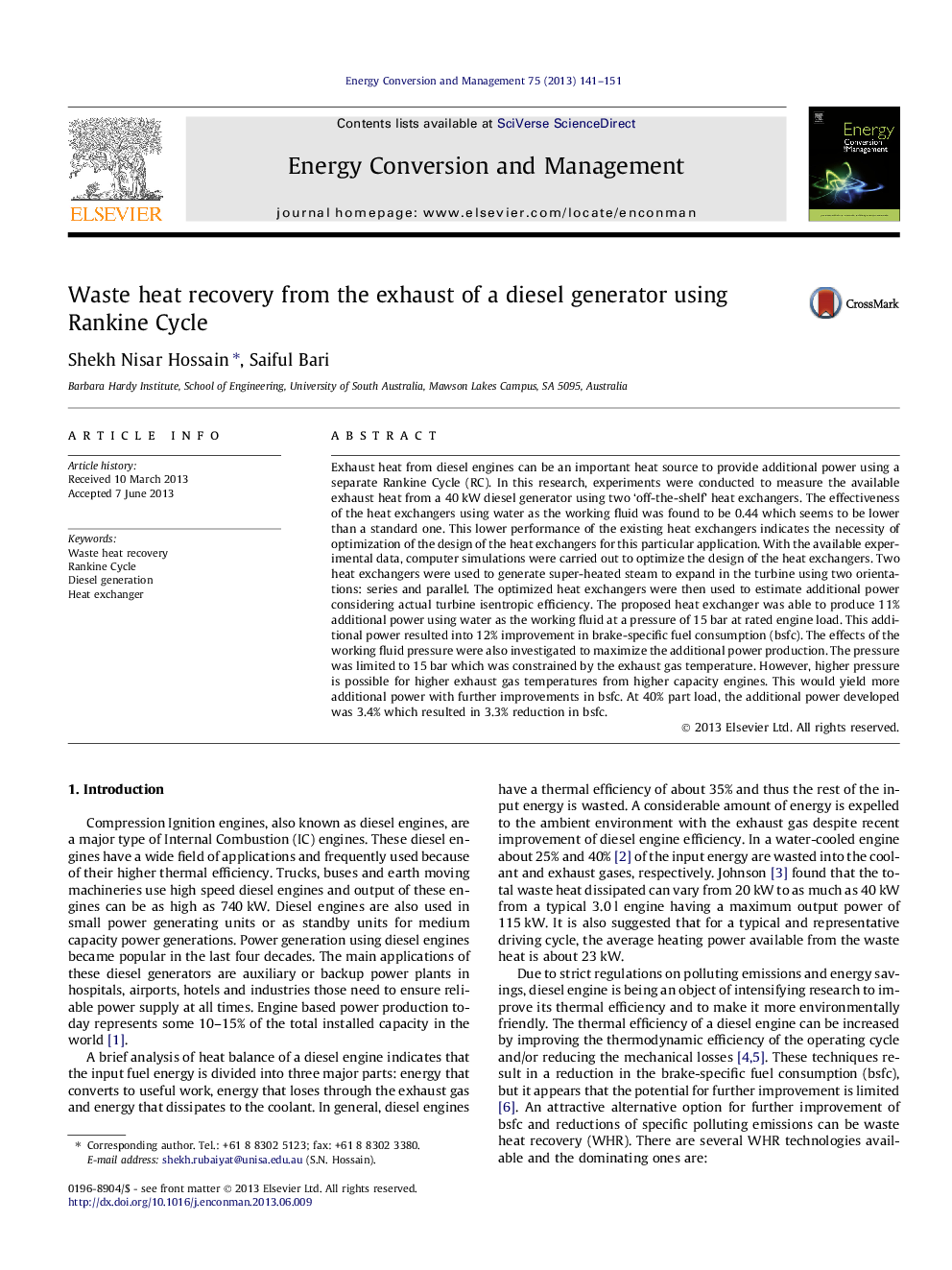| Article ID | Journal | Published Year | Pages | File Type |
|---|---|---|---|---|
| 7166164 | Energy Conversion and Management | 2013 | 11 Pages |
Abstract
Exhaust heat from diesel engines can be an important heat source to provide additional power using a separate Rankine Cycle (RC). In this research, experiments were conducted to measure the available exhaust heat from a 40Â kW diesel generator using two 'off-the-shelf' heat exchangers. The effectiveness of the heat exchangers using water as the working fluid was found to be 0.44 which seems to be lower than a standard one. This lower performance of the existing heat exchangers indicates the necessity of optimization of the design of the heat exchangers for this particular application. With the available experimental data, computer simulations were carried out to optimize the design of the heat exchangers. Two heat exchangers were used to generate super-heated steam to expand in the turbine using two orientations: series and parallel. The optimized heat exchangers were then used to estimate additional power considering actual turbine isentropic efficiency. The proposed heat exchanger was able to produce 11% additional power using water as the working fluid at a pressure of 15Â bar at rated engine load. This additional power resulted into 12% improvement in brake-specific fuel consumption (bsfc). The effects of the working fluid pressure were also investigated to maximize the additional power production. The pressure was limited to 15Â bar which was constrained by the exhaust gas temperature. However, higher pressure is possible for higher exhaust gas temperatures from higher capacity engines. This would yield more additional power with further improvements in bsfc. At 40% part load, the additional power developed was 3.4% which resulted in 3.3% reduction in bsfc.
Related Topics
Physical Sciences and Engineering
Energy
Energy (General)
Authors
Shekh Nisar Hossain, Saiful Bari,
